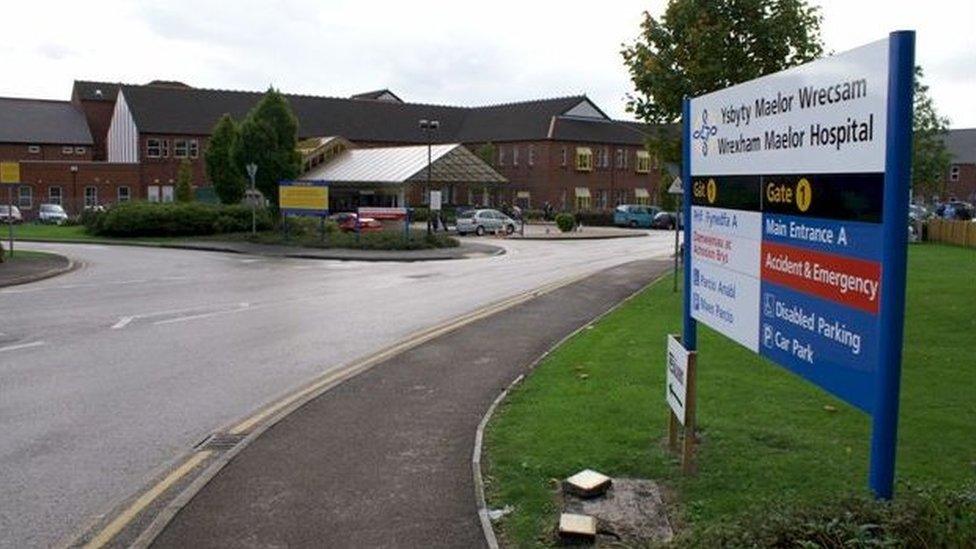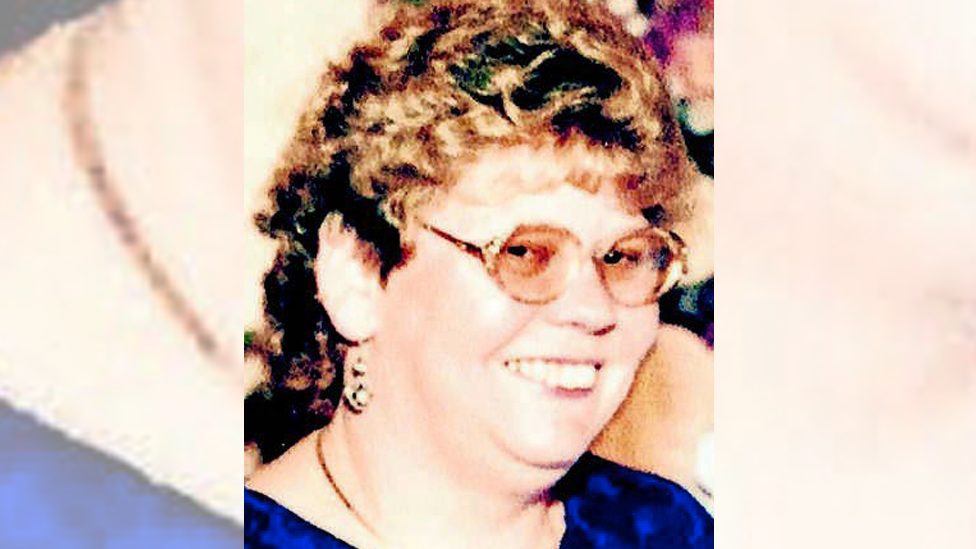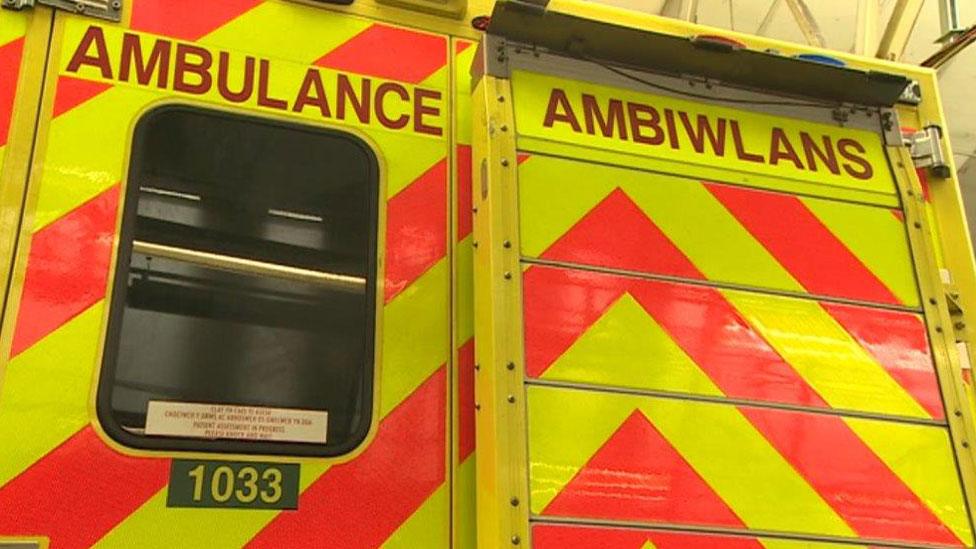Trudy Jones inquest: Changes follow 999 call death
- Published

The inquest heard the family could have travelled to Wrexham Maelor Hospital in five minutes
The inquest into the death of a Wrexham woman, who waited nearly an hour for an ambulance, was told the local health board had been experiencing a "very difficult weekend" at the time.
Ellen Greer worked as Betsi Cadwaladr health board's operational manager when Trudy Jones died in January 2016.
She said that since Mrs Jones's death, it had put new procedures in place to escalate concerns to managers.
The ambulance service apologised after a narrative conclusion was given.
It also said it had made a number of changes following the death of Mrs Jones, 49.
The Ruthin inquest was told the health board runs three on-call levels across its three main hospital sites; bronze, silver and gold to monitor demand and patient flow, and it can divert patients from one busy hospital to another.

Ms Greer said since Mrs Jones's death there were now three set conference calls a day involving staff and on-call managers, to ensure better communication in terms of planning across its sites.
Mrs Jones's husband Ronald dialled 999 at about 23:33 GMT on 2 January because his wife was unwell and had difficulty breathing at their home.
But she collapsed 45 minutes later and stopped breathing seven minutes before the ambulance arrived.
On Monday, her inquest was told that her case had been classed as "amber two" but should have been classed as "amber one" - a more urgent response - from the first call from her husband.
It was miscategorised because a call handler had indicated "yes" instead of "no" when considering whether Mrs Jones was capable of finishing sentences, the hearing was told.
Assistant coroner Nicola Jones said it was now known that Mrs Jones had had heart failure and should have been categorised as an amber one.
However, even if she had been correctly categorised, an ambulance would not have reached her by the time she went into cardiac arrest.
Karl Hughes, who was the Welsh Ambulance Services NHS Trust (WAST) locality manager for Wrexham and Flintshire at the time, said: "It's not what the organisation wants but we were doing everything we could at that time."

Later, he told the inquest he visited the control room in Llanfairfechan, Conwy county, where some staff were in tears over the case.
The assistant coroner delivered a narrative conclusion, saying that Mrs Jones's case had been incorrectly categorised but by time the callout was re-categorised during a follow-up 999 call, no ambulances were free.
She said it had not been established with certainty that Mrs Jones would have survived but it was reasonable to find she would have survived long enough to get to hospital.
Family 'trauma'
After the inquest, Claire Bevan, from the ambulance service, said it had launched an investigation following Mrs Jones's "tragic death to understand exactly what happened and establish what lessons could be learned".
"We have shared our findings with Mrs Jones's family and are truly sorry that we did not meet our standards in answering and reassessing their call.
"The colleagues involved have been retrained following this sad incident.
"Since Mrs Jones's death we have taken a number of steps to improve the safety of our patients," she said.
Mrs Jones' sister-in-law Morfydd Wood read a statement on behalf of the family following the inquest.
She said they found it difficult to accept that Mrs Jones had been "failed in this way", given she lived close to a hospital and ambulance station.
But she thanked both organisations for their honestly and said she hoped that changes put in place would "prevent any other family the trauma we have felt".
- Published6 November 2017
